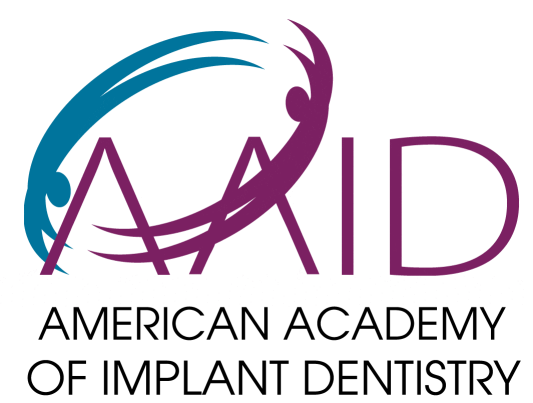What does a dentist do, and what comprehensive responsibilities do these healthcare professionals handle in maintaining your oral health? A dentist serves as a specialized medical professional dedicated to examining, diagnosing, treating, and preventing dental and oral health issues for patients of all ages. At Lansdowne Family Dental, our dental team exemplifies the diverse range of expertise required in modern dentistry, combining clinical skills with patient education to ensure optimal oral health outcomes for our Loudoun County community.
The role of a dentist extends far beyond simple tooth cleanings and cavity fillings, encompassing a broad spectrum of preventive, restorative, and cosmetic procedures that address everything from routine maintenance to complex oral health challenges. Modern dentistry requires extensive training, continuous education, and proficiency with advanced technology to deliver comprehensive care that protects and enhances patients’ oral health and overall well-being.
In this detailed exploration of dental practice, we’ll examine the core responsibilities that define modern dentistry, discuss the various procedures and treatments dentists perform daily, explore the advanced technology and techniques used in contemporary dental care, outline the educational requirements and specializations within the dental field, and provide you with a comprehensive understanding of how dentists contribute to your overall health and quality of life.
Core Dental Responsibilities and Daily Duties:
- Comprehensive oral examinations to identify diseases, infections, and developmental issues
- Diagnostic procedures including X-rays, digital imaging, and oral cancer screenings
- Preventive treatments such as cleanings, fluoride applications, and dental sealants
- Restorative procedures including fillings, crowns, bridges, and dental implants
- Cosmetic treatments like teeth whitening, veneers, and smile makeovers
- Surgical interventions including extractions and minor oral surgery
- Patient education on proper oral hygiene and preventive care practices
What Does a Dentist Do?
At its core, a dentist is a qualified medical professional specializing in oral health. They diagnose, treat, and prevent issues related to teeth and gums, guiding patients toward a brighter smile and better oral hygiene. The duties of a dentist are diverse and encompass a range of procedures, each tailored to address specific oral health needs.
👉 Book a Dentist Appointment Today!
Exploring the Key Responsibilities
1. Conducting Oral Examinations
As part of routine check-ups, dentists meticulously examine patients’ mouths, identifying potential problems like cavities, gum diseases, or even oral cancer at early stages. These assessments are critical for early intervention and prevention.

2. Creating Treatment Plans
After diagnosing oral issues, dentists develop comprehensive treatment plans. These plans outline the necessary procedures and interventions, considering factors like the severity of the condition, patient preferences, and long-term oral health goals.
3. Performing Dental Procedures
Dentists are skilled in a wide array of procedures. From simple tasks like teeth cleanings and fillings to more complex treatments such as root canals, extractions, and dental implants, their expertise spans various disciplines.
4. Orthodontic Guidance
For individuals with misaligned teeth or bite issues, dentists provide orthodontic guidance. They recommend suitable treatments, like braces or Invisalign aligners, to improve dental alignment, enhancing both aesthetics and functionality.
5. Cosmetic Dentistry
Dentists also enhance smiles through cosmetic procedures. Teeth whitening, veneers, and dental crowns are among the options they offer to transform the appearance of teeth, boosting patients’ self-confidence.
For residents of Ashburn, Leesburg, and Lansdowne, VA, choose Lansdowne Family Dental for quality dental care. We offer various dental services with a patient-centric approach. Start your dental journey with us. Contact us!
6. Educating Patients
Beyond treatments, dentists educate patients on proper oral care techniques. They offer insights into effective brushing, flossing, and diet choices to maintain oral health between visits.
7. Preventive Measures
Dentists emphasize prevention by applying sealants to protect teeth from decay and suggesting fluoride treatments to strengthen enamel. These measures thwart potential dental issues before they escalate.
8. Managing Pain and Infections
In cases of toothaches or infections, dentists provide relief. They address pain, prescribe medications, and perform necessary procedures to eliminate infections and restore comfort.
9. Collaborating with Dental Specialists
For complex cases, dentists collaborate with specialists like oral surgeons, periodontists, and endodontists. This ensures that patients receive the highest level of care, even for intricate procedures.
10. Staying Abreast of Advancements
Dentistry is ever-evolving, with new technologies and techniques emerging. Dentists stay updated on these advancements to provide the best possible treatments, ensuring optimal patient outcomes.
Conclusion
Dentists are integral to our oral health journey, offering a wide spectrum of services that extend beyond regular check-ups. Their expertise encompasses preventive care, treatment of existing issues, and even cosmetic enhancements. By understanding the comprehensive role of dentists, individuals can take proactive steps toward achieving and maintaining a healthy, radiant smile.
Frequently Asked Questions (FAQs)
Q: Is visiting the dentist only necessary when experiencing oral issues?
A: No, regular dental check-ups are essential for preventive care and early problem detection.
Q: Do dentists only work on natural teeth?
A: While dentists primarily focus on natural teeth, many also specialize in dental implants and prosthetics.
Q: How often should I go for a dental check-up?
A: It’s recommended to visit the dentist every six months for routine check-ups and cleanings.
Q: Are there alternatives to traditional braces?
A: Yes, options like clear aligners provide a more discreet way to straighten teeth.
Q: What can I do to maintain good oral health?
A: Brush and floss regularly, maintain a balanced diet, and avoid tobacco products to promote oral well-being.
Q: Is cosmetic dentistry only about aesthetics?
A: No, while cosmetic procedures enhance appearance, they can also restore functionality and strengthen teeth.






